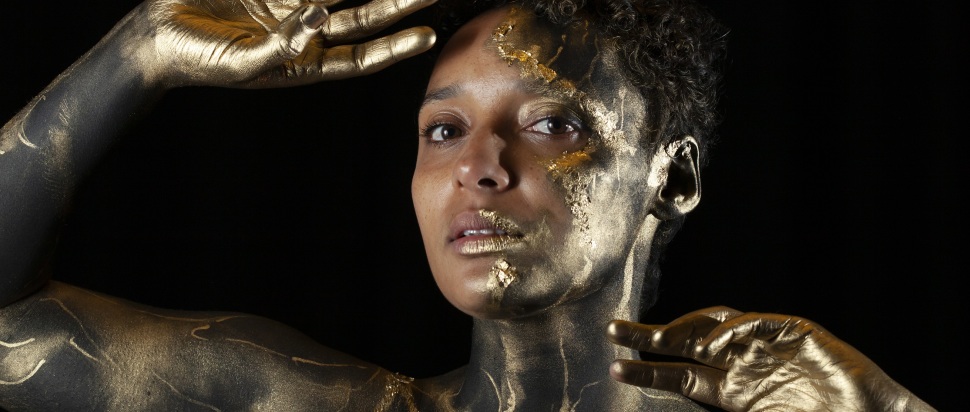Workers Theatre on Something Has to Happen Festival
We catch up with the folk from The Workers Theatre about radical art, how a theatre cooperative works and why their upcoming festival – Something Has To Happen – couldn't be more timely
'The Workers Theatre rejects privatised profit as the enemy of good art'; 'Our art will be committed to the liberation of all people'; 'The Workers Theatre will be populist but not shit.' These are just a few of the statements from a Manifesto written up by the Workers Theatre in 2017 – when a group of artists, tired of the constraints that came about from working with funding bodies and institutions, got together to take matters into their own hands. Their first project, Megaphone, aimed to crowdsource £11,000 to provide a residency for artists of colour; the project resonated, and they exceeded their target by more than £1000 (their success was covered in this magazine back in May 2017).
Shortly afterwards the collective staged their first festival, The Workers Theatre Weekender, featuring works-in-progress by the recipients of the residency alongside a variety of shows, workshops and talks. Now they're back, with their second festival, Something Has To Happen, in the works. Taking place in Glasgow's Southside from 12-16 February, the festival has some great events programmed, including a staging of Mara Menzies' critically acclaimed Blood and Gold, a relaxed performance of new material from Josie Long and a couple of free breakfasts (we're sold). We chatted to two members of the collective, writer Henry Bell and actor Beth Frieden, to find out more about the cooperative, the festival and why radical theatre has an important role to play in the resistance.
Could you tell us a little bit about how The Workers Theatre started – where the idea came from, and how it was put into action?
Henry Bell: The Workers Theatre came about for a couple of reasons. One was the lack of access to rehearsal and performance space in the city after the closure of The Arches, and the other was the feeling that decisions about what art should and could be made were increasingly the preserve of managers and funders, not arts workers. So as a group of artists, actors, writers and producers we came together with the vision of creating a space for radical theatre in Glasgow.
What makes The Workers Theatre different to other theatre companies?
Beth Frieden: We are a cooperative! This means that members are owners of the company. The structure is horizontal, so decision-making power is shared. We can take different roles for different projects, but we always return to an equal base. We are democratically owned and managed. We are also explicitly political in our manifesto: we want to produce art that entertains and radicalises.
Why does your upcoming festival, Something Has To Happen, have to happen now?
HB: There’s never been a more urgent time for us to tell these stories and have these conversations. The rise of the far right, capitalism destroying the planet, a stultifying government re-elected to Westminster – there’s no question that Something Has To Happen. We need some hope in the dark, and we hope that the festival will provide some space for imagining and acting out a better world.
What can audience members expect to see at the festival?
BF: Comedy, theatre, music, kids' shows, storytelling about the legacy of slavery, performance about the fragile male ego, sex worker unionisation hymns, and even a Transylvanian ceilidh.
Is there a particular reason why you chose to host the festival in Glasgow's Southside?
HB: The Southside has a population of hundreds of thousands, with relatively little arts provision. It’s also beautiful and most of us live here.
Do you think that there is a political threat to the perseverance of theatre right now? If so, how can we fight against it?
BF: Radical theatre, touring theatre, and stories by and for marginalised people are always under threat in a society that values profit above people. But we can fight back by making that art, and by supporting those artists that offer us glimpses of those different worlds.
Do you think theatre has a role to play in the labour movement?
HB: The labour movement is all about the stories we tell. Who we are, how we are organised, what kind of a future we want. Storytelling is one way to share ideas, and can also help serve as collective memory, to remind us of our own history and what we are capable of. Protests and direct action are often in themselves a type of theatre too. But theatre, and storytelling, and singing keeps us going in struggle. We need to have fun. We stand firmly behind the line in Bread and Roses – 'Hearts starve as well as bodies / Give us bread, but give us roses.' We want a world where everyone has access to art and theatre, both making it and watching it, as well as shelter and food.
Something Has to Happen, Various venues across Glasgow's Southside, 12-16 Feb
workerstheatre.wordpress.com/something-has-to-happen/
